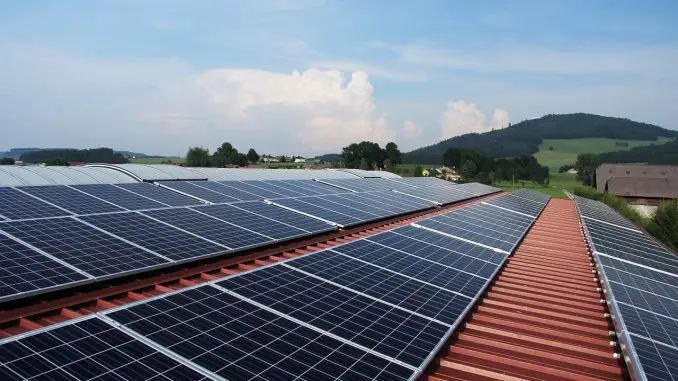
5 facts about solar energy
1. The sun’s energy is infinite and renewable
The sun’s energy has several advantages; it will exist for many billions of years and it is constantly being renewed, which means that we do not have to use finite resources such as coal, oil or nuclear power.
2. Solar radiation in numbers
At the earth’s distance from the sun, the effect of the solar radiation on average for a year is 1350 kW / m².
3. Many climates are great for solar energy
The solar cells become more efficient when they are cooler. Too hot conditions cause the cells to suffer from energy leakage.
4. Energy from the sun is good for the climate and environment
Solar energy is both fossil-free and renewable, which means it has a minimal impact on the climate compared to, for example, coal and oil. The main environmental impact of solar cells comes from the energy that is consumed during the manufacturing process, just as in the manufacture of any other products or materials.
But then they can generate 4-12 times as much energy during their lifetime. If you look at carbon dioxide emissions, it will take about 12-18 months before the production of solar cells corresponds to the production of solar cells.
5. The history of solar energy through the ages
Solar energy in some form has been used since the beginning of time. But the first solar cell to produce electricity from the sun was invented in 1954 by Daryl Chapin, Calvin Souther Fuller, and Gerald Pearson.
In 1958, solar cells began to be used, for example, in satellites. Since then, solar cells have been spread around the world, due to prices having fallen radically.
What is solar energy?
Solar energy is energy that comes from the sun’s light. It is thanks to the solar energy that there is life on earth. Without the heat and light of the sun, the earth would be cold and dark, and it is the light from the sun that allows the plants to grow through photosynthesis.
Benefits of solar energy
Solar energy does not cause any emissions during operation and in the production of solar cells and solar collectors, the energy consumption is small compared to the amount of energy that can be produced during its lifetime. There are several techniques for extracting both electricity and heat from the sun.
The most common are solar cells, which convert the sun’s rays into electricity or solar collectors, which convert solar energy into heat.
Disadvantages of solar energy
Solar energy is weather and seasonal dependent and solar energy is not produced when the sun has gone down. This means that the amount of solar energy produced varies, compared to, for example, hydropower, which is constant.
Solar cells or solar collectors convert the sun’s energy
The most common technologies in solar energy are solar cells, which convert the sun’s rays into electricity, and solar collectors, which convert them into heat.
Solar cells have been used since the 1950s to supply satellites in space with electricity. Simpler solar cells have also long been used in a number of everyday products, such as solar-powered calculators, and have also found a market in plants that are expensive to connect to the electricity grid such as lighthouses.
Solar cells consist of so-called semiconductors that can be made of different materials, usually silicon. In silicon, the sun rays are converted directly into electrical energy. So far, it is a rather expensive way to produce energy, but it is hoped that the production cost will fall dramatically.
Solar collectors are a way to extract heat from solar energy. A solar collector heats water, which normally circulates in a closed water system. All buildings and plants with hot water needs during the summer are excellent application areas and during the summer months, solar heat can withstand the heating of the entire tap water needs.
Brilliant future for solar energy
The use of solar power has increased dramatically in recent times and will continue to do so as solar cells become more efficient, and we become more conscious about renewable energy.
Leave a Reply